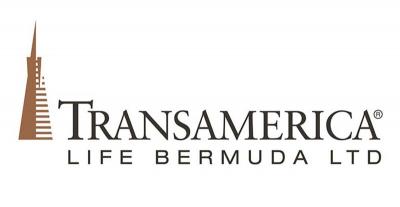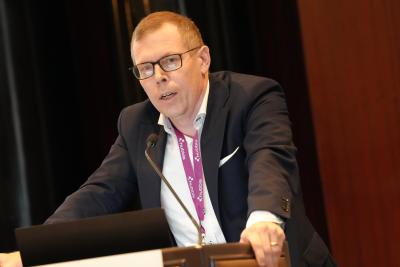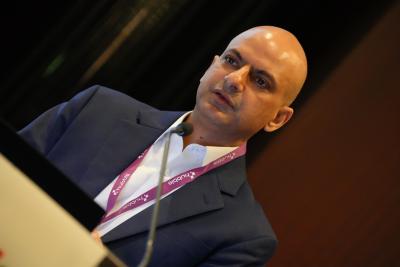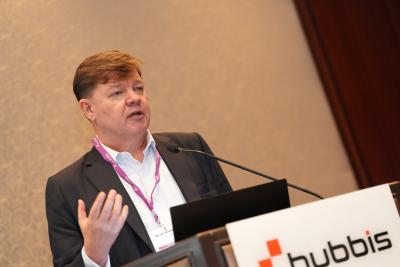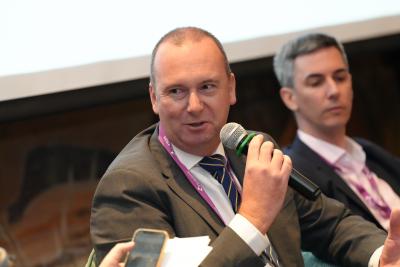A Hubbis Thought Leadership Event
In May, Hubbis hosted a private discussion in Dubai amongst experts on the wealth management market in the UAE. The event was kindly supported by Transamerica Life (Bermuda). This is a short synopsis of some of the key insights from the assembled experts, all wealth management leaders in private banks, EAMs, MFOs, life insurers and other entities plying their trade in the region. The picture the experts painted was one of a market enjoying rapid growth, improving professionalism, the support of fast-expand private wealth accumulation in the region, and huge inflows of international HNW and UHNW wealth.
At a Glance – What the Experts Said
The UAE is increasingly seen as an ideal mid-point between the West and the East, with both European and Asian private banks and wealth managers establishing or expanding their operations. At the same time, this is drawing in more professional and fiduciary service providers, adding to the virtuous circle of expertise and activity.
Banks and EAMs are eyeing up the prospects for the development of the custody offering in the region, which although only very much in its infancy, and currently really only for local or regional assets, is expected to gradually expand in the years ahead.
The growth of the economies in the region, of private wealth locally, and the continuing rapid inflow of HNW and UHNW families and wealth from across the globe provide the tailwinds for the expansion of the market, with sufficient headroom even today for the rising number and diversity of competitors in the wealth management space.
More global money will pour into the region from all over the world as the UAE continues to develop and evolve its economy, regulations and broader wealth management offering. And watch out for a long-anticipated new and huge wave of money from China…
As the wealth market and its potential are improving in the UAE and beyond in the region, and as the lifestyle improves and the regulatory environment matures, as well as with the far easier availability of work and residential visas, more and more senior bankers and specialists from both Europe and also Asia are receptive to moving to the region to further their careers, including to take up the reins of the new spate of private bank operations at the leading UAE and Middle East banks.
As typically the case with a fast-growth but relatively less developed market, it is increasingly tough – and expensive – to hire the right talent. The situation makes it tougher for the independent wealth community to hire than the private banks, which have far more resources and of course, come armed with international brands.
There is an increasing focus in the region on estate and legacy planning, both for regional business families and also for international clients flooding into the UAE, and at the same time of course, the wealth management community is projecting its capabilities in this regard not only to connect to founders/patriarchs but also to the next and younger generations.
The wealth management market in the region is diversifying and maturing, but from a relatively less developed base than, for example, in much of Asia and most certainly compared with established international centres such as Hong Kong and Singapore. The improvements need to be across the board, encompassing regulation, talent and professionalism, technology, diversity of product and advice, and in plenty of other areas besides.
The Key Insights & Observations in More Detail
Asian banks and other private banks are building fast in the UAE as the wealth management offering grows and as more synergies and opportunities arise, but there are a number of key challenges
A Singaporean banker highlighted the reasons they were expanding in the UAE and why he had moved there. Over many years he had come and gone during his career, and today the environment is dramatically different, with the pace and depth of the changes having accelerated in particular during and after the pandemic. He observed that the general regulatory environment has been liberalising, while the Golden Visa rules are highly welcoming.
He noted that there are 200 different nationalities represented in the UAE and that UHNW wealth grew roughly 18% in 2022, and the CAGR projected over the next five to seven years is roughly about close to 6%. The region is similarly dynamic, with dramatic developments taking place in Saudi Arabia, with Riyadh characterised, he said, by the Financial Times as the new Palo Alto with numerous venture capital funds moving in the new tech firms going there seeking funding.
But growth comes with challenges. He identified three key areas. First, he said the they deal with three regulators in the UAE, the central bank, the DFSA and DIFC, which is awakward. Secondly, there is a shortage of talent. Thirdly, there needs to be a stronger pivot away from transactional wealth management toward a more holistic, client-centric asset allocation-driven model.
EAMs and MFOs from Europe and Asia are also moving into the region, some seeking new custody diversification
The UAE partner of a Swiss-based MFO with an established Asian operation explained why they see such an interesting opportunity for the EAM offering in the UAE, where they had set up in the ADGM under a 3C license. “We see a lot of European and HNW wealth globally coming here in the future, hence there are many opportunities,” she said. “It is different from being regulated by FINMA in Switzerland and the MAS in Singapore, but we can look through the challenges to the interesting cooperation with domestic and other banks.”
Custody diversification is one growth area ahead, as the UAE gradually offers a new custodian proposition
She added that they want collaboration and relationships with the banks in the region as there is considerable potential for custody diversification beyond Europe and Asia. “Clients are actually demanding more diversification,” she said. “The world is, unfortunately, more unstable. and clients would like to have an experience and the opportunity to gain exposure in this region. Moreover, the UAE is becoming very attractive for setting up foundations or trusts, so this also becomes a very attractive centre for the structuring and restructuring of HNW and UHNW wealth.”
There is already enough business to go around for the new influx of EAMs and MFOs
Are the overseas headquartered EAMs that are moving in prepared to make the region a loss leader in the meantime? No, said another EAM head operating out of the DIFC there is already sufficient business to allow them to float, and there is, like with other markets in Asia and elsewhere, growing momentum for the independent wealth model. He explained that they hav been building linkages and relationships with partners to ensure that their offering is as diverse and professional as possible, across discretionary, advisory, lending, mainstream investments, private equity and alternatives. “There will be greater collaboration between the private banks and the EAMs as time goes on, and while to some extent we are in competition, I think collaboration will be the way that we need to think and move forward. Over a longer-term basis, the EAM model will become more important to private banks as a revenue stream.”
He explained that they also collaborate with digital investment platforms and explained that wealthy private clients are increasingly receptive to working with EAMs and the digital platforms rather than the private banks, although he acknowledged that work then needs to be done around custody.
Another EAM head agreed, noting that their model focused also on the clients in the USD1 million to USD5 million space, where there is a lot of growth potential at home and coming in from overseas for diversification. “Those clients do not have the opportunity for proper relationships with the private banks, as they do not meet the thresholds, but they are very often growing wealth and perhaps then also inheriting significant wealth,” he reported. “Planning their wealth and for their families’ futures is a very important element of the offering as well; it is not just pure investment management.”
The UAE is increasingly appealing to seasoned private bankers coming in from Europe and Asia to take up the reins of the new spate of PB offerings within leading local banks
The relatively newly appointed head of private banking for a leading local UAE bank explained that he was enticed away from Europe and Asia. He explained that the time is right, there are all the great advantages other attendees had highlighted, and there is also a major opportunity around custody for the banks. “These are all core reasons why I decided to join one of the biggest banks in this region, including for booking assets, which could become a real opportunity, a real alternative,” he reported. “If you look at the journey of all the banks, which are universal banks doing private banking, they all went through this time where they decided the private bank should be one of their important business lines. That is the situation for us now.”
The same banker explained that the custody proposition is very much in its earliest stages, somewhat like Singapore 20-plus years ago, since when Singapore made a major thrust to become a significant, credible booking centre to rival Hong Kong in Asia.
“I am not saying the UAE is ready,” he offered. “There are many things that must develop and change, but we are certainly contributing to this thinking process. The UAE can become a competitive booking centre, but many steps need to be taken first. In the meantime, the banks are doing well already but as in other markets around the world always seeking new business and revenue opportunities for the years ahead. There are many challenges to building custody out here, and then of course the rates need to be competitive with other leading centres as well.”
Another leading local banker agreed, adding that there is a growing sense of urgency now for the major banks in the region to diversify new products, new management, new objectives and new models. “It is happening,” he stated.
Another private banker from Singapore added: “Diversification to the PB model is to capture the opportunities that the retail banks cannot grasp or will lose out on. You need a separate identity for a differentiated product offering, differentiated advice, differentiated technology, differentiated branding, and so forth. That has worked extremely well for our bank in Singapore, which has wealth as one of the four key pillars for the future, and where we have our own distinct and individual PB brand.”
Another private banker said this all tallies ideally with the dramatic diversification amongst HNWIs and UHNWIs in or coming to the region for wealth management and also residence. He noted that the world is moving towards minimum tax rates and the offer of a 90-day tax residency in the UAE is now making things very attractive from that perspective.
“A decade ago, when I moved to Dubai, a lot of wealthy families that I knew, were slightly disparaging because these people used to have holiday homes in London, New York, the South of France, but now Dubai counts in that list of alternatives and is far more credible in so many ways,” he explained.
He said the lifestyle, the infrastructure, the education, the healthcare, the security, the property market, all these are far better and increasingly world-class. “Indeed,” he said, “you can import your lifestyle, you can come in as you are, you can come in with your cook from back at home, you can come in with your driver from back at home, you can choose to live on the Marina, or you can choose to live on the Villa. The opportunities for us private bankers to network these families, those settled here and those multi–jurisdictional families, are immense and growing all the time.”
Talent is in short supply, but everyone is working hard to improve things, while costs and the authorities are fairly conducive and welcoming
A banker said that Singapore is really struggling with talent, due to costs, regulations, permits and so forth, making it tough to bring in RMs and other bankers and specialists. He said that the UAE, on the other hand, is at a stage where they can be far more flexible making it far easier to look for talent from outside the region. Nevertheless, this all needs to be built up, as there are significant difficulties in the specialised areas such as structured products, private markets, private equity, and even credit. “I am looking to build our credit structuring team over here, and I'm struggling,” this banker reported. “Right now, there is only a handful of people that we can talk to in the market.”
An EAM head agreed, adding: “If a leading foreign private bank setting up here is facing these challenges, imagine how tough it is for an independent wealth management firm with far lower financial and other resources. Moreover, there is a broader shortage than just in specialised areas as well, with a lack of sufficient expertise and depth in the more mainstream financial market and products. Meanwhile, the clients coming here are more sophisticated, more demanding, so there is a disconnect that does need addressing.”
Another banker added that clients expect more of their RMs as well, not only in terms of their skills and experience, but also their communication, their proactivity, their client centricity and so forth.
The head of a far smaller boutique private bank added that trying to hire talent from overseas as a smaller bank is very difficult, and the local market does not offer the right people for them. He explained they have therefore decided to take younger talent and nurture them to gain the right experience. “They might have contacts, including with local and regional families, but they need to learn from the older, more experienced bankers, but of course, those are in short supply here,” he said. A guest added that the talent shortages are not only bankers/RMs but across technology, compliance, legal and other areas.
A local banker at a major bank offered a different viewpoint, namely that for all of the core banking areas in which they operate, and which are growing with the influx of more and more HNWIs and families, many of them wanting to buy properties, car and avail themselves of a host of banking services, there is enough talent locally.
“The money we can make on deposits as rates rise if far more than that you can make on running any discretionary mandate or any advisory mandate,” he reported. “If you don't do anything with the money brought in and park it with Central Bank, we get 4.9% per annum. And we can offer mortgages, many of these people need corporate banking offerings and skills, and so forth; in short, there are many ways we and other banks can benefit as the inflow of HNWIs and families escalates. The bottom line is that our business is booming, thanks to the efforts of everyone else bringing these high net worth customers to come in here.”
He explained that the UAE was the recipient of the highest number of high-net-worth individuals migrating into this region last year in 2022, with 15000 families recorded as arriving there. “In reality,” he said, “the actual number is perhaps three times that level. Imaging how much they are spending and how much they are using the broad array of banking services and products.”
Another senior local banker agreed, adding that local and regional families have far more trust in the local/regional banks, especially those that are government-linked or partly government-owned than they do in the foreign banks and private banks. She said that many HNW and UHNW clients are also moving some of their assets back to the region, which is boosting the domestic banking activity and the Dirham-based business.
The rise of wealth and estate planning and associated structures and life solutions
A long-established EAM founder and CEO pointed to the rise of holistic wealth planning and structuring including the increasing use of life insurance solutions especially for HNW and UHNW clients. He said this was a conscious decision to evolve their offering, as the market’s competitive dynamics had changed over the years. He said this type of holistic advice involves a lot of work with private banks, fiduciaries, trust companies, trustees, lawyers and others.
“Insurance structures can help mitigate a variety of current or future tax obligations for such clients,, including estate taxes in the US, or other taxes around the globe where these types of clients hold property or other assets,” he reported. “There are so many derivatives of high-value insurance solutions, but my clients want genuine and holistic advice to help devise plans and structures and then the right products to suit those decisions.”
More global money will pour into the region from all over the world as the UAE continues to develop and evolve its economy, regulations and broader wealth management offering. And watch out for a new wave of money from China…
There appeared to be a consensus that more and more global money – for example from China – could pour into the region in coming years, as the UAE becomes more of a mainstream wealth, advisory and professional services hub, assuming the governments continue their policies of opening the door to residence in the region, thereby offering families a longer-term horizon and stability. Moreover, the geopolitical neutrality of the region is increasingly appealing to many people around the world.
“The positioning of the UAE is very smart indeed,” came one voice. “The region is increasingly open-minded, and the authorities know there's so much desert to fill, and we have to attract so many people, hence residence and even citizenship are on the table now. China offers massive potential for this region in terms of private wealth moving here, bringing family offices as well.”
He said Hong Kong is now considered part of China, so is far less appealing for the mainland Chinese seeking offshore structures, and while Singapore has been the major beneficiary, some of those Chinese families are looking elsewhere.
Tempering this view somewhat, another guest said the China wave was not yet happening, but that there are many families and advisors looking at the DIFC and ADGM offerings, infrastructure and ecosystems. “This is the information gathering stage right now,” he said, “and is sending a very strong signal that at some point, at least some of them are going to move here.”
Experts close with their wish lists on what needs to change and how things can improve in the UAE
The UAE’s reputation for good regulation and appropriate global-level rules must improve. Too often individuals are arriving with literally bags of cash, the guests explained, damaging the advances in the region and causing scepticism amongst global bodies such as the OECD.
Product pushing needs to become a more holistic advisory with far greater objectivity and client centricity.
The regulators and bodies need to become more unified in approach and be less competitive amongst themselves.
Custody needs to begin in earnest as what one EAM head called ‘the real money’, meaning established, documented and fully transparent wealth is not yet coming to the region, still preferring jurisdictions in which they have full trust.
The legal system and infrastructure need to evolve significantly.
The authorities need to further build on their communication to encourage more family offices and enhance the overall wealth management infrastructure and ecosystem.
There needs to be nurturing of talent, more training, greater professionalism and an increasingly open dialogue between the regulators and authorities and the private sector.
